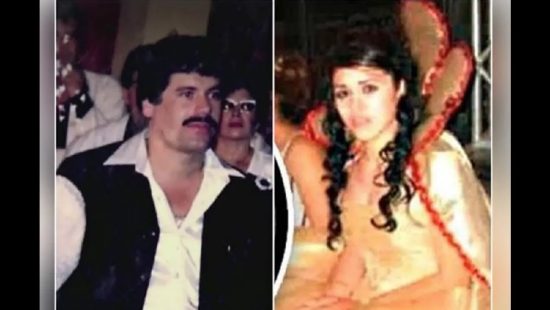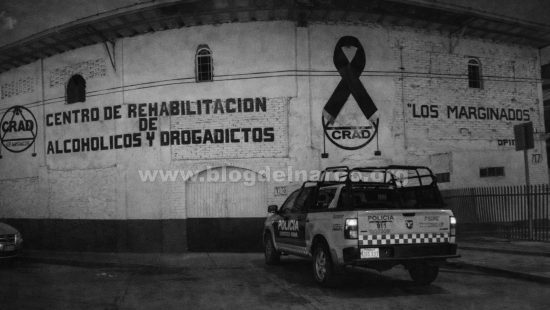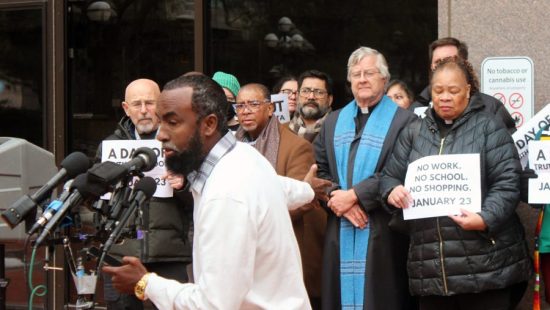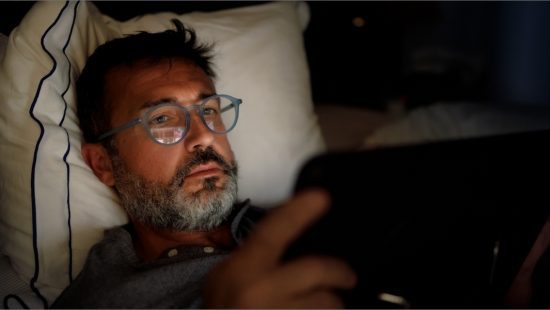“Father Greg suggests replacing snap moral judgments with a simpler question — is this person well?”
There’s no trick here. Donald Trump, the president of the United States — the most powerful country — has been the talk of the world in recent years, and even more so since he took office for a second term with control of both Congress and the Senate.
His legacy, in these early months in power, has been marked by fear, ‘sadism,’ threats, and contempt for the most vulnerable people. In particular, it’s important to highlight his immigration policy, where Trump and his administration have imposed measures that violate even the most basic standards of human rights.
Trump survived a trial where he was found guilty of numerous charges. However, his electoral victory meant he didn’t go to jail. Instead, he made his way to the White House to govern for another four years.
Since then, the country has been in chaos — and so has the world. Not a day goes by without a surprising or unexpected new measure being announced. Various communities see him as an unjust ruler who doesn’t care about people’s suffering.
Recently, on the podcast 10% Happier with Dan Harris — a retired American journalist from ABC News who used to anchor Nightline and co-anchor the weekend edition of Good Morning America, and now hosts this show focused on meditation and wellness — there was a guest: Father Gregory Boyle, founder of Homeboy Industries. In the episode, he invites us to “stop asking whether people are good or bad and instead ask whether they are well.”
His key insight: You can resist injustice without vilifying others, and you can confront brokenness by leaning into connection and community.
In short, we cannot improve this world, this humanity, by reacting in the same way that we’re attacked. For Boyle, LOVE is one of the key words.
“Father Greg suggests replacing snap moral judgments with a simpler question — is this person well? Letting go of ‘good vs. evil’ allows space for compassion and understanding, even in polarized times. This isn’t about approving harmful behavior — it’s about seeing the wound underneath it,” they write in the show’s introduction.
For Boyle, cherishing love means rolling up your sleeves and taking action from a place of care, not rage.
As I listened to these words, I thought about the thousands of immigrants deported, humiliated, beaten, and children left orphaned. I asked myself: Is it possible to love Trump, to recognize he is a person, and to forgive him?
I couldn’t picture it. Boyle and Harris talk about a world of small changes, about building communities where, one by one, we strengthen each other so that we — and others — can be well. Or as they explain, if we care about the wellness of others, that reflects the wellness we live with ourselves.
Boyle believes that “communities that drive us sane (not crazy!) are built on tenderness and genuine belonging, not just shared opinions.” Healing becomes contagious when people feel seen, cherished, and supported.
“Boyle recommends a daily stance of ‘affectionate awe’ — noticing pain beneath behavior instead of reflexively judging it. Over time, this retrains your mind toward connection.”
Another very important factor is trying to eliminate what society frequently adopts: judging others.
“As Father Gregory Boyle (known to many as Father Greg or Father G — more on him in a moment) has observed, the judging starts as soon as your feet hit the floor in the morning.”
Here are some tips to avoid the temptation of judgment, according to Father Boyle:
“Next time you catch yourself judging, ‘go against.’ We’re all going to judge; it’s human. But Father Greg says the key is what you do next. He advises agere contra — Latin for ‘to go against’ — as a way to override your knee-jerk response. When you notice judgment kicking in, try swapping it for curiosity.
Instead of assessing whether someone is evil, ask whether they are healthy. Moral judgments keep us stuck. Father Greg urges us to trade them for something more useful — a kind of ‘health assessment.’ Most harmful behavior, he says, isn’t evil — it’s a symptom of anguish, trauma, or disconnection. So instead of jumping to blame, ask: What pain might be driving this? It doesn’t excuse the harm, but it helps us respond effectively without the unnecessary add-on of hatred.
Feeling despair? Add your light to the sum of light. When the world feels hopeless, Father Greg echoes a line from the movie The Year of Living Dangerously (starring Mel Gibson, before he lost his damn mind). Your job is simply to ‘add your light to the sum of light.’ In practical terms, he suggests that means ‘doing the next loving thing you can do.’”
There’s no doubt that a person who leads and endorses destructive acts cannot be mentally well. But the option remains open: if we don’t want to fall into the same equation, then change is not only possible — it is necessary, especially in these times.








